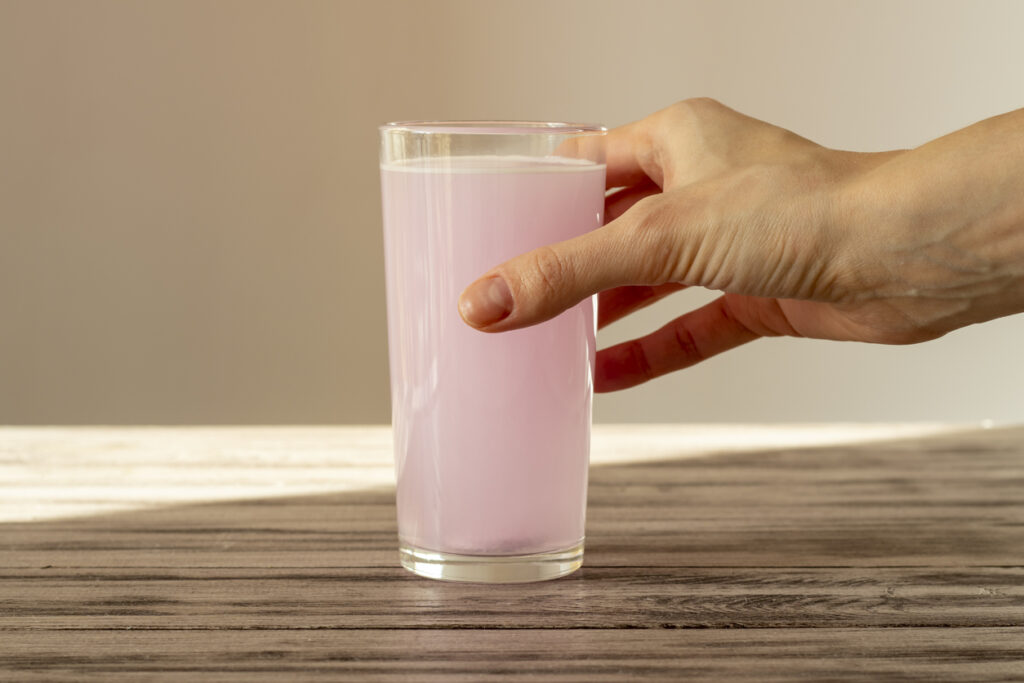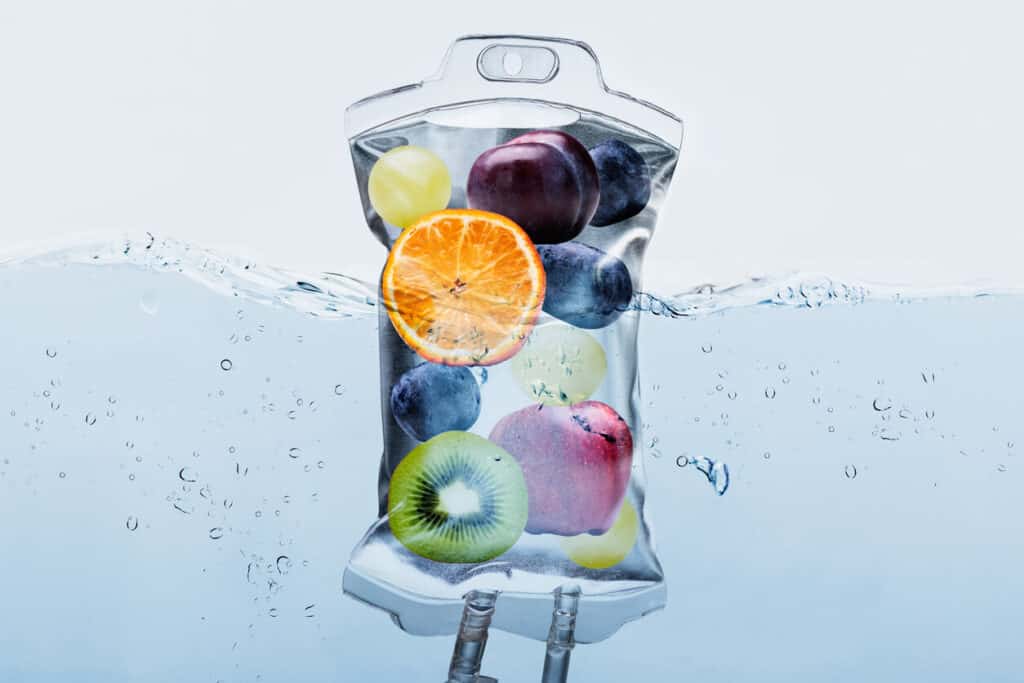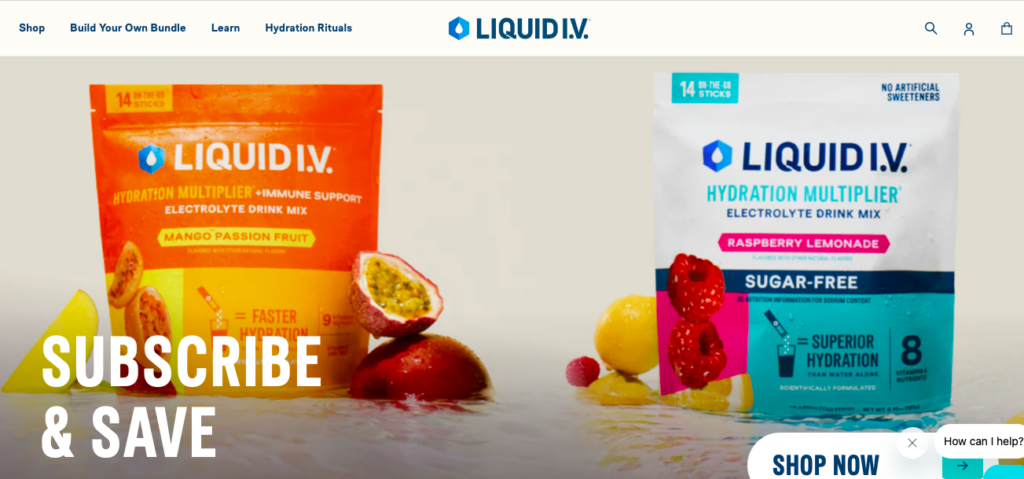Are electrolyte supplements healthy?
Electrolyte supplements like Liquid IV are rapidly gaining popularity and are being sold as a quick and effective way to increase hydration, improve athleticism and increase combat dehydration. They certainly serve their purpose, but many consumers may not realize that these products often contain high levels of sodium and other minerals that can pose health risks if consumed regularly along with typical diets.
So, are electrolyte supplements really beneficial or are there hidden dangers? Let’s explore what electrolytes do, those who actually need supplements, and when these powders may do more harm than good.

What is an electrolyte? Why do you need them?
Electrolytes are minerals that help regulate essential body functions, such as fluid balance, neural signaling, and muscle contraction. The most common electrolytes include:
Sodium: Helps regulate fluid levels and blood pressure. Potassium: Supports muscle and nerve function. Magnesium: Relaxation and energy production of AIDS muscles. Calcium: Essential for bone health and muscle contraction. Chloride: Helps maintain fluid balance and blood pressure.
These minerals are lost by sweat and urine and are sufficient for most people from food and drink while they need to be replenished.


Why are electrolyte supplements so popular?
Electrolytes are often sold to people who are active, dehydrated or recovering from illness. Some of the most common claims made by electrolyte brands are:
Enhanced Hydration: These powders often contain sodium and glucose, allowing for improved water absorption. Improved Energy Levels: Electrolyte powder claims to reduce fatigue by replenishing lost minerals. Improved recovery from exercise and illness: Popular among athletes and those experiencing dehydration due to vomiting, diarrhea, or alcohol consumption.
One of the most well-known brands, Liquid IV uses a concept called Cellular Transport Technology (CTT®). This is likely to increase the body’s ability to absorb water and nutrients faster than water alone. But where is the research and does this mean that the average person should consume these products regularly?
Probably not.
Uncovering claims about electrolyte supplements
Many electrolyte supplement brands claim that their products greatly promote water absorption, suggesting that the body struggles to effectively hydrate without them. There are some truths to the idea that sodium and glucose can promote faster absorption of water, but that’s the myth that the body cannot absorb water without electrolytes.
The human body is designed to efficiently absorb water without the need to add electrolytes. The small intestine absorbs most of the water consumed by penetration. This is the process of moving water across the cell membrane based on a concentration gradient. This occurs regardless of whether the electrolyte is present or not.
Sodium and glucose can promote water absorption in cases of dehydration, such as during illness or after severe sweating. This principle is the basis of oral fluid supplementation therapy (ORT), which is used to treat severe dehydration in medical settings. However, if a healthy person drinks normal water throughout the day, electrolyte supplementation is not required to hydrate.
For the average person who drinks plenty of water and eats a balanced diet, hydration happens naturally. Electrolyte powders can provide benefits in extreme conditions, but are often not necessary for daily hydration. Water is enough for most people.


Hidden risks of electrolyte supplements
High sodium content and its results
Most electrolyte powders containing liquid IV contain large amounts of sodium. For comparison, the American Heart Association (AHA) recommends limiting sodium intake to 2,300 mg per day. The ideal goal is 1,500 mg, especially for people with hypertension or heart disease.
If you are consuming electrolyte powders in addition to your regular diet already containing sodium from processed foods, restaurant meals, and even natural sources such as dairy and vegetables, you may well exceed your daily sodium needs. Over time, excessive sodium intake contributes to:
Hypertensive (hypertensive) heart disease and stroke kidney damage fluid retention and increased risk of bloating electrolyte imbalance
A single serving of liquid IV may not look too much, but taking it daily or multiple times will easily push your sodium intake beyond your healthy limits.


I think many people need to replenish their electrolytes simply because they sweat or get tired. However, most people receive adequate electrolytes from a balanced diet. Some people who may truly benefit from supplements include:
Endurance Athletes: People who engage in long-term physical activity (marathon runners, triathletes, etc.) and reduce a significant amount of sweat. People experiencing dehydration: This includes people with illnesses that cause vomiting or diarrhea, people who work or exercise violently with extreme fever, or are recovering from alcohol consumption. Certain medications: For example, diuretics can lead to electrolyte imbalances and may require replacement.
For the average gym person, casual runner, or just trying to promote hydration, electrolyte powders are often unnecessary and can lead to excessive sodium intake.
Should I avoid electrolyte supplements?
Electrolyte drinks and powders can be beneficial in some cases, but can be dangerous to certain groups.
People with hypertension or heart disease: Excess sodium can worsen hypertension and cardiovascular health. People with kidney disease: The kidneys regulate the balance of the electrolytes and add excess sodium or potassium to place additional strains on them. People who are prone to bloating and fluid retention: High sodium intake can cause your body to retain excess water, causing swelling and discomfort. People with a sedentary lifestyle: If you’re not sweating a significant amount of electrolytes, consuming these powders can cause unnecessary imbalances in your body.
Marketing tactics can be misleading
Many electrolyte powders containing liquid IV sell themselves as “essential” for hydration, even those who have not lost excessive liquid. Terms like “science maintained” and “quick absorption” can actually make the majority of people think that if they simply need water and a healthy diet to stay hydrated, they need these products.
Some products also contain sugars or artificial sweeteners, which can contribute to blood sugar spikes, digestive issues and unnecessary calorie intake. Liquid IV comes in several variations with low sugar content, but the original formula contains 11 grams of sugar per serving.
Should I use electrolyte supplements?
Electrolyte powders, such as liquid IV, are beneficial in certain situations, such as during endurance exercise, illness, or extreme heat exposure. However, in the average person, they are often unnecessary, and can contribute to excessive sodium intake, increasing the risk of hypertension, heart disease and kidney strains.
Rather than relying on electrolytes for hydration, we focus on a balanced diet rich in food, drinking plenty of water, and balanced diets that naturally consume from food sources. If you choose to use these products, do so carefully and moderately.
Hydration is essential, but it’s not always better, especially when it comes to sodium. Always consider your individual health needs before adding electrolyte supplements to your daily routine.





